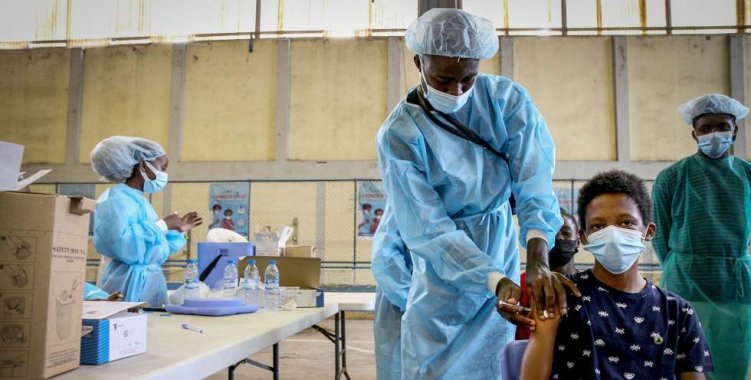According to the national director of Public Health, Helga Freitas, five years after Africa detected the first case of Covid-19, strengthening epidemiological surveillance, with the training of technicians throughout the country, was one of the lessons learned from the pandemic.
"We have strengthened epidemiological surveillance by training technicians. At the moment, at the municipal level in Angola, there is a strengthened epidemiological surveillance system with teams prepared to respond to outbreaks and epidemics and we have no doubt that this was our greatest lesson learned from Covid-19," she said.
Speaking to Lusa, Helga Freitas highlighted the authorities' response to the polio outbreak, recorded in 2024, and the detection of the cholera outbreak, which has been spreading across the country since last January, as a result of the reinforcement of epidemiological surveillance imposed by Covid-19.
She added that this reinforcement also includes laboratory and environmental surveillance, carried out by the National Institute for Health Research, an agency that in 2024 detected type 2 polio virus in an environmental sample.
"We quickly managed to mobilize funds and launch a blockade campaign," said the official, also highlighting the actions of the rapid response teams that, at the beginning of January, detected the first cases of cholera and are working on the ground to contain the outbreak.
"We also mobilized vaccines at an international level to contain the [cholera] outbreak and for me this was the great lesson learned from strengthening the system, it was undoubtedly the reinforcement of epidemiological surveillance at a national level," she insisted.
For Helga Freitas, Covid-19 brought another global vision on the importance of public health and a vision of an integrated response to epidemics or pandemics.
Angola, which reported the first case of local transmission of covid-19 in April 2020, has recorded a cumulative total of 35,854 cases, including 800 deaths, due to covid-19, the first case of which was detected in Africa (in Egypt) five years ago, on February 14.
The national director of Public Health, a department of the Ministry of Health, also highlighted the government's measures to contain the pandemic for three months, which allowed the country to purchase masks and biosafety material.
"There was almost no [biosafety material] in the world and Angola managed to prepare itself during this period and was able to actually obtain biosafety material and medical products from China" and prepare treatment centers, isolation centers and containment measures, she recalled.
She noted, on the other hand, that no health system in the world was prepared, at the time, to face Covid-19, noting that the pandemic completely challenged systems and also strengthened systems in responding to epidemics, outbreaks and pandemics.
"I think this is the great legacy that Covid-19 has left. Unfortunately, many people have been lost, including health professionals, but I think that health systems have been strengthened and are better prepared to respond," she said.
According to Helga Freitas, national authorities acted "very well" in managing the pandemic, after five years, a management that would be replicated if an outbreak emerged today.
"Obviously, health measures were taken that had an impact in economic terms – such as the State of Emergency decreed by the President – but it was a necessity and, therefore, I would not do it differently, we would do it exactly the same", concluded the official.
The Covid-19 pandemic has caused at least 3,731,297 deaths worldwide, resulting from more than 173.2 million cases of infection, according to a report by the French agency AFP.
The disease is transmitted by the new coronavirus SARS-CoV-2, detected at the end of 2019, in Wuhan, a city in central China.







